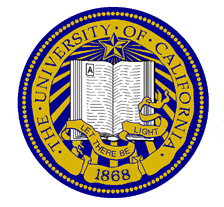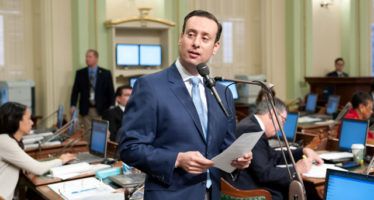University of California looks likely to drop SAT, ACT requirement

Leaders of the University of California system appear strongly inclined to drop the requirement that applicants to UC campuses take the SAT or ACT test, heeding the argument that it hurts the chances of Latino and African-American students to be admitted.
A faculty task force is expected to deliver a report on whether the mandate should be retained in February. But UC Regent Eloy Ortiz Oakley, who is also the chancellor of the California Community College system, has already called for scrapping the standardized test requirement. So has UC Berkeley Chancellor Carol Christ and Michael Brown, the provost and executive vice president for academic affairs for the UC system and its 10 campuses. No one who works for UC appears to be standing up, at least publicly, for the testing mandate.
The SAT/ACT test has for decades been criticized for alleged cultural bias against minorities. But that claim is strongly disputed by the College Board, which administers the test and says it has long since fine-tuned the language of questions in the test so that they don’t presume knowledge of white cultural norms. Some academic studies back up this claim of neutrality and find that SATs are a better indicator of college success than grades.
But one of the SAT critiques offered by Ortiz, the regent, is mostly undisputed. It’s that low-income Latino and African-American families are unable to pay for the vast variety of test-preparation classes used by middle-income and wealthy families to help their children. “Perhaps the tests were well-intended, but they are perpetuating a wealth advantage and undervaluing low-income students,” he wrote earlier this year.
The Princeton Review test-prep company, for example, “guarantees” that its 30-hour, $1,599 class will lead to at least a 1400 score on the basic SAT. A 1400 is at the 95th percentile of the approximately 2 million SATs taken each year.
Meanwhile, upper-income families have long been willing to spend whatever it takes to help their children on standardized tests, in particular by hiring specialized English and math tutors who charge up to $450 an hour.
But the College Board pushes back on this front as well, saying it provides free test prep online that helps tens of thousands of students each year.
Nonprofit behind SAT defends UC admission practices
The New Jersey-based nonprofit is so worried that a UC decision to drop the SAT would be copied by many other U.S. universities – as a recent USA Today analysis predicts – that it is offering increasingly thorough defenses of how UC makes its admission decisions.
According to an EdSource report, Jessica Howell, vice president of research at the College Board, appeared at a symposium on the SAT two weeks ago in Berkeley in which she suggested that critics of the test exaggerated its importance to UC admission officers, who consider 14 factors in evaluating prospective students.
“Any effective standardized measure that is one of those factors is going to reveal underlying inequities in our society,” she said. “As researchers, we shouldn’t stop using them, or measuring them because we don’t like what they say. … [Instead,] we should continue to have a discussion about solutions to close the gaps that we see.”
The comment reflects the College Board’s argument that if SAT critics think it’s unfair that students from wealthy families with more resources do better than students from poor families, it’s not the test that’s unfair. It’s American life – the rich can help their kids more than other families.
To address this issue, the College Board proposed also giving SAT test takers an “adversity score” in May so colleges could quickly determine if a student came from difficult circumstances. But the plan was dropped in August after if faced harsh criticism that it was a facile attempt to label students from wildly different backgrounds with a simple number.
Chris Reed
Chris Reed is a regular contributor to Cal Watchdog. Reed is an editorial writer for U-T San Diego. Before joining the U-T in July 2005, he was the opinion-page columns editor and wrote the featured weekly Unspin column for The Orange County Register. Reed was on the national board of the Association of Opinion Page Editors from 2003-2005. From 2000 to 2005, Reed made more than 100 appearances as a featured news analyst on Los Angeles-area National Public Radio affiliate KPCC-FM. From 1990 to 1998, Reed was an editor, metro columnist and film critic at the Inland Valley Daily Bulletin in Ontario. Reed has a political science degree from the University of Hawaii (Hilo campus), where he edited the student newspaper, the Vulcan News, his senior year. He is on Twitter: @chrisreed99.
Related Articles
Lawmaker accused of domestic violence to stay in Assembly leadership
Assemblyman Roger Hernández, who last week was placed under a temporary restraining order from his wife, will not be stripped of his
CA Democratic Convention: Democrats divided on economic issues, trade pact
Sen. Elizabeth Warren staked her claim as the progressive choice for president Saturday, with a rousing speech to delegates at the
NOAA: Trash Island doesn’t exist
Despite stories to the contrary, there is no Texas-sized trash island floating in the Pacific, according to the National Oceanic and




